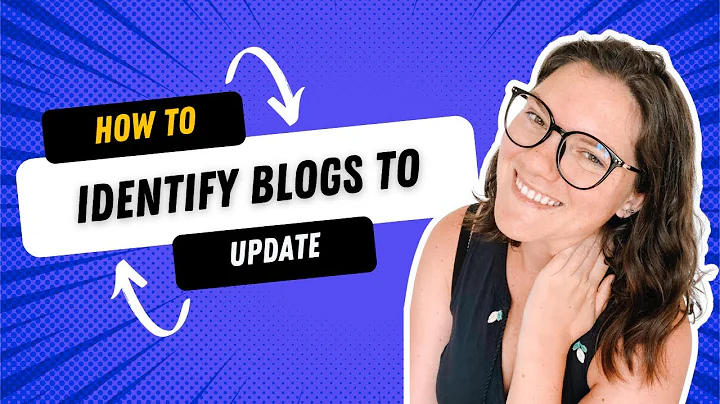Boost Your Google Rankings with 7 Real Estate SEO Strategies!
Table of Contents:
- Introduction
- Conducting Keyword Research
- Optimizing Your Website Content
- Starting a Blog
- Building Backlinks
- Enhancing User Experience
- Implementing Local SEO
- Ongoing SEO Management and Maintenance
- Conclusion
How to Improve Your Real Estate Website's Search Engine Ranking
Are you a real estate agent looking to boost your online presence and generate more leads? If so, it is crucial to ensure that your website ranks high on Google. Organic search engine optimization (SEO) is one of the most cost-effective ways to attract leads and drive traffic to your website. In this article, we will outline seven key steps to improve your search engine ranking and start getting found by your target audience. By implementing these strategies, you will be able to increase your visibility, generate more leads, and close more deals. So let's dive into this exciting topic!
Step 1: Conducting Keyword Research
The first step in improving your real estate website's search engine ranking is conducting thorough keyword research. Think about the keywords that potential clients would use when searching for properties or real estate tips. Use tools like Google Keyword Planner, Uber Suggest, or Google Trends to identify the most relevant keywords in your niche. Make a list of both short and long-tail keywords that you want to rank for. These keywords will serve as the foundation for optimizing your website content.
Step 2: Optimizing Your Website Content
Once you have identified the keywords you want to rank for, it's time to optimize your website content. Start by ensuring that your website is mobile-friendly. With the majority of internet users accessing websites from mobile devices, having a responsive website is crucial for SEO. Additionally, use descriptive alt tags for your images and provide video descriptions to enhance accessibility. Properly use header tags (H1, H2, H3, etc.) throughout your content, incorporating relevant keywords. Remember to avoid overusing header tags, as this may negatively impact your ranking. Lastly, include internal links within your website to help Google index your pages more effectively.
Step 3: Starting a Blog
Starting a blog is an excellent way to drive traffic to your real estate website and improve your search engine ranking. Regularly updating your blog with relevant, informative content demonstrates to Google that your website is active and up-to-date. Write blog articles about real estate tips, local community events, market reports, and other useful information for your target audience. Make sure your blog is balanced, covering a variety of topics to keep your readers engaged. Don't forget to share your blog posts on social media platforms to attract more visitors to your website.
Step 4: Building Backlinks
Building backlinks is an effective way to improve your real estate website's search engine ranking. Backlinks are links from other reputable websites that lead to your website. Look for opportunities to guest blog on credible websites within your industry or collaborate with local businesses to create backlinks. You can also promote your website on other platforms by providing a summary of your article and adding a link back to your website. Monitoring your backlinks using tools like Uber Suggest or Ahrefs will help you gauge the quality and quantity of your backlinks.
Step 5: Enhancing User Experience
Providing an excellent user experience is vital for improving your real estate website's search engine ranking. A mobile-friendly, easy-to-navigate website with clear call-to-action buttons will reduce bounce rates and increase conversions. Ensure that your website has a consistent and visually appealing design, making it easy for users to find the information they need. Creating landing pages with a clear intent, such as scheduling appointments or downloading resources, will further optimize your website.
Step 6: Implementing Local SEO
Local SEO is crucial for real estate agents as much of their business is location-dependent. To implement local SEO, start by creating a Google Business listing. This free listing should include your website, reviews from satisfied clients, and accurate business information. Encourage satisfied clients and colleagues to add positive reviews to your Google profile. Incorporating location-specific keywords throughout your website and blog articles will further enhance your local SEO efforts.
Step 7: Ongoing SEO Management and Maintenance
Search engine optimization is an ongoing process. To maintain and improve your real estate website's search engine ranking, consistently add fresh, up-to-date content to your website and blog. Regularly monitor your progress and rankings using tools like Google search or Ubersuggest. Address any SEO issues such as broken links promptly. Remember, SEO requires ongoing dedication and maintenance.
By following these seven steps, you can significantly improve your real estate website's search engine ranking and attract more leads to your business. Organic SEO is a cost-effective way to drive traffic and increase your online visibility. Don't overlook the power of a well-optimized website in today's digital landscape. Start implementing these strategies today and watch your real estate business thrive!
Pros:
- Cost-effective way to generate leads
- Builds credibility and trust with potential clients
- Increases organic traffic to your website
- Improves online visibility and brand awareness
- Establishes you as an expert in your local market
Cons:
- Requires ongoing commitment and maintenance
- Takes time to see significant results
- Can be competitive in crowded real estate markets
Highlights:
- Boost your real estate website's search engine ranking
- Improve visibility and generate more leads
- Conduct keyword research to target the right audience
- Optimize your website content for mobile and SEO
- Start a blog to drive traffic and showcase expertise
- Build backlinks from reputable websites
- Enhance user experience for better conversion rates
- Implement local SEO for location-specific searches
- Maintain and monitor your SEO strategy for long-term success
FAQs
Q: How long does it take to see results from SEO?
A: SEO is a long-term strategy, and it can take several months to see significant results. The time frame largely depends on various factors, such as the competitiveness of your market, the quality of your content, and the effectiveness of your SEO efforts.
Q: Can I do SEO on my own, or should I hire a professional?
A: While it is possible to handle basic SEO tasks on your own, hiring a professional SEO agency or consultant can provide you with more in-depth expertise and save you time and effort. An SEO professional can offer guidance, identify areas for improvement, and ensure that your website is optimized effectively.
Q: How many keywords should I target on my website?
A: It is recommended to target a mix of both short-tail and long-tail keywords on your website. Focus on keywords that are most relevant to your real estate niche and local market. Avoid keyword stuffing and aim for a natural and informative use of keywords throughout your content.
Q: Are there any SEO tools that can help with my website optimization?
A: Yes, several SEO tools can assist you in optimizing your website. Some popular options include Google Keyword Planner, Uber Suggest, Ahrefs, and Ubersuggest. These tools provide keyword research, backlink tracking, and other valuable insights to help improve your SEO strategy.
Q: Should I invest in paid advertising or focus solely on SEO?
A: Both paid advertising and SEO have their benefits. Paid advertising, such as Google Ads or Facebook Ads, can provide immediate visibility and targeted exposure. However, organic SEO can deliver long-term results and is a cost-effective way to attract organic traffic. A combination of both strategies can be a powerful approach to maximize your online presence.







